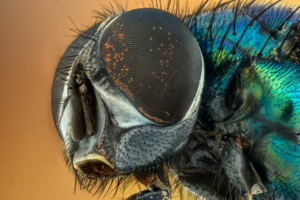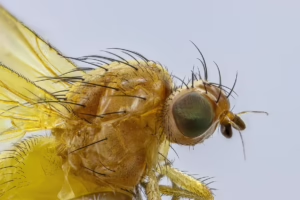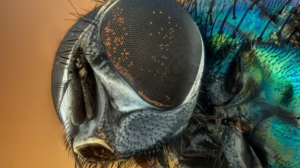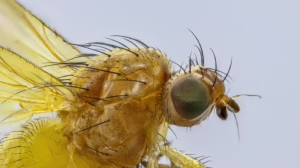The Science of Play: Integrating Real-World Biology into Gaming with Mods
Introduction
Video games have become a pervasive form of entertainment, offering players the chance to escape reality and immerse themselves in richly designed virtual worlds. At the intersection of entertainment and education lies an intriguing concept: integrating real-world biology into gaming through mods. With advancements in technology and a growing interest in science among gamers, this article explores the sociology of gaming, the scientific principles of biology, and the innovative ways in which modding can create immersive educational experiences.
The Evolution of Gaming
A Brief History
Video gaming has evolved dramatically since its inception in the early 1970s, transitioning from simple arcade games like Pong to complex worlds found in modern-day MMORPGs (Massively Multiplayer Online Role-Playing Games) like World of Warcraft. The rise of personal computers and gaming consoles has led to an explosion in genres, styles, and demographic reach. Games are not only popular among teenagers but are played by individuals across age ranges and backgrounds.
The Role of Game Design
Game design is a careful balance of art and science. Designers draw on principles of psychology, sociology, and biology to create experiences that engage players. As games have become more accessible, the community of modders—players who create modifications to existing games—has grown. Modding allows for new content and features, which can elevate gameplay, but it can also provide unique opportunities for integration with real-world science, particularly biology.
Understanding the Science of Biology
The Basics of Biology
Biology is the natural science that studies life and living organisms, encompassing their structure, function, growth, evolution, and distribution. It encompasses various fields like genetics, molecular biology, and ecology.
Key Concepts of Biological Science
- Cell Theory: All living things are made up of cells, which are the basic units of life.
- Evolution: Species evolve over time through natural selection.
- Ecosystems: Interactions among organisms and their environment form complex ecosystems.
These concepts form the foundation upon which various biological applications can be integrated into gaming environments, enhancing both gameplay and educational value.
The Intersection of Biology and Gaming
Why Integrate Biology into Games?
The integration of biology into gaming presents a unique opportunity to educate players while keeping them entertained. Players can learn about ecosystems, anatomical structures, or even genetics without the pressure often associated with traditional forms of learning.
Examples of Biological Principles in Games
Games such as Spore, BioShock, and Kerbal Space Program showcase different aspects of biology by allowing players to manipulate genetic traits, explore marine life, or understand the physics of flight, respectively. Each of these games incorporates biological sciences to enhance realism and engagement, prompting players to consider the principles underlying their gameplay.
Modding: A Platform for Biological Learning
What Are Mods?
Mods, short for modifications, are alterations made to existing video games. These can range from simple cosmetic changes to comprehensive overhauls that introduce entirely new gameplay mechanics or narratives.
The Rise of Educational Mods
Educational mods have started gaining traction in various gaming communities, especially within games known for their flexible design, such as Minecraft and Skyrim. These games offer APIs (Application Programming Interfaces) that allow developers to create custom content, making them ideal candidates for integrating biological concepts.
Successful Examples of Educational Mods
-
Minecraft: Education Edition: This version of Minecraft includes lessons on biology, allowing players to explore ecosystems, genetic diversity, and the human body while completing challenges.
-
Teach Biology with Mods: Various mods for popular games introduce genetic manipulation and evolution mechanics that reflect real-world biology principles.
-
Ecology Simulator Mods: Mods that simulate ecosystems can help players understand food webs, predator-prey relationships, and the impact of environmental factors on biodiversity.
The Modding Community as a Learning Hub
The modding community itself serves as a learning environment. Developers often share their knowledge, tools, and sources, fostering a culture of collaboration that can inspire new modders to create educational content. This helps instill an appreciation for biology while allowing modders to engage with scientific concepts in creative ways.
How to Create Educational Mods
Understanding the Basics
Creating mods requires a basic understanding of programming, art, and design. Various forums and resources exist to help budding modders learn the necessary skills.
Steps to Modding
-
Choose Your Game: Select a platform that supports modding; games like Minecraft or Skyrim are great for beginners.
-
Research Biological Concepts: Ground your mod in scientific principles by conducting research on your chosen topic in biology.
-
Plan Your Mod: Create a blueprint for your mod, outlining its features and how they will educate players about biology.
-
Development: Use modding tools to implement your designs. Popular tools include MCreator for Minecraft or the Creation Kit for Skyrim.
-
Test and Iterate: Playtest the mod to identify any issues and gather feedback from other gamers.
-
Share Your Work: Upload your mod to platforms like Nexus Mods or CurseForge, and promote it within the gaming community.
Tools for Modding
- MCreator: A user-friendly modding tool designed for Minecraft.
- Skyrim Creation Kit: A powerful tool for creating mods for Skyrim.
- Unity: A game development platform that allows for extensive modding capabilities across multiple genres.
The Impact of Educational Mods on Learning
Engaging Players in Science
Educational mods have the potential to engage players in subjects like biology in ways that traditional educational methods cannot. By gamifying education, players are more likely to retain information and develop a deeper understanding of scientific concepts.
Fostering Curiosity and Inquiry
Players who engage with educational mods often develop a natural curiosity about the topics presented. This inquiry-based learning approach encourages players to explore, ask questions, and seek further knowledge, creating a path for lifelong learning.
Real-World Applications
Educators can utilize mods to design tailored learning experiences within the classroom by incorporating gameplay into their lesson plans. This can make complex topics more accessible and engaging for students.
Challenges and Limitations
Accessibility of Mods
Not all mods are created equal, and the quality of educational content can greatly vary. Some mods may oversimplify scientific concepts or lack accurate representations of biological principles.
Audience Engagement
Engaging different demographics in learning biology through gaming can be challenging. Younger audiences may gravitate towards entertainment, while older audiences may seek more complex challenges. Developers need to consider these factors when designing educational mods.
Technical Barriers
Creating high-quality mods often requires technical skills that many players may not possess. This can limit participation in educational modding initiatives.
Conclusion
The fusion of biology and gaming through the use of mods offers an exciting avenue for education, making learning fun and engaging. As the gaming industry continues to evolve, so too will the opportunities to create educational experiences that resonate with audiences worldwide. By harnessing the creativity of the modding community, we can inspire curiosity and foster a love for science in a generation of players.
Future Directions
As blockchain technology and the Metaverse emerge, the landscape of gaming and learning may further evolve. Educational mods could leverage these technologies, creating even more immersive and interlinked experiences. The future of gaming holds exciting potential for the integration of science, encouraging a deeper understanding of the world around us.
Call to Action
For educators, gamers, and developers alike, consider the possibilities:
- Explore existing educational mods and contribute to discussions on how to improve them.
- Think about how you can create your own mod, grounded in biological principles that can inform and educate others.
- Encourage the integration of gaming into educational curriculums to enhance engagement and learning.
By utilizing the power of games and modding, we can transform the way we think about education and science, ultimately making learning a more enjoyable and rewarding process for everyone involved.
References
With this exploration, we aim to encourage dialogue and inspire the next generation of gamers and educators to leverage the fusion of gaming with real-world science. Whether you’re a seasoned modder or a gaming novice, the blend of play and education can lead to new realms of discovery.


























Add Comment